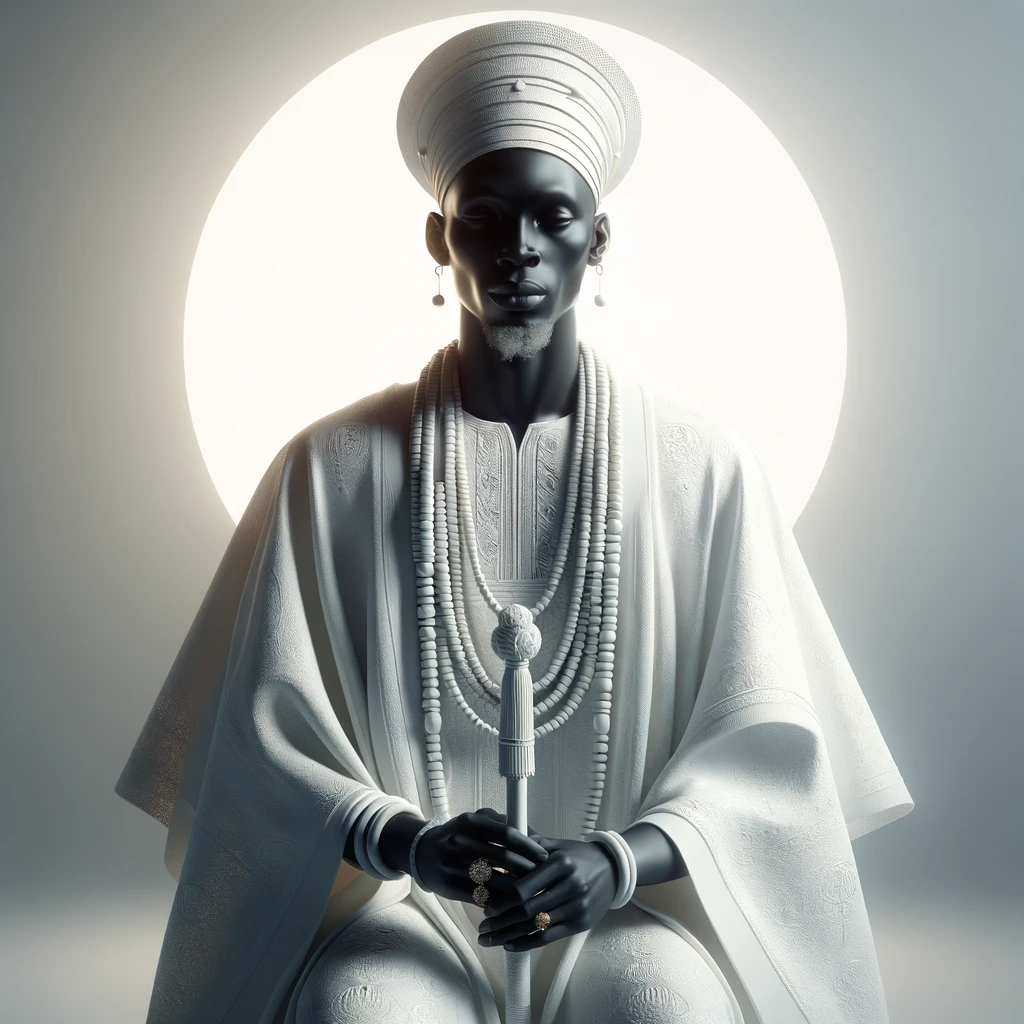
Obatala is associated with the color white, symbolizing purity, clarity, and transcendence. Often depicted wearing white robes, Obatala personifies the principles of wisdom and fairness. His symbols include the oshe, a staff representing authority, and the oke, a double-headed ritual implement symbolizing balance and equilibrium.
The essence of Obatala is intricately connected to the creation of human beings. In Yoruba mythology, Obatala is believed to have played a pivotal role in molding the physical forms of humans, breathing life into them, and infusing them with the divine essence. As such, Obatala is often associated with the shaping of human character and destiny.
Obatala is revered for his wisdom and impartial judgment. As the Orisha of justice, he is called upon to resolve conflicts, dispense fairness, and guide individuals on the path of righteousness. Devotees often seek Obatala’s guidance when faced with moral dilemmas or decisions requiring a just and equitable resolution.
Beyond his role in justice, Obatala is considered the Orisha of creativity and innovation. The story of Obatala’s creation of human beings reflects his artistic and inventive qualities. As the guardian of the arts and crafts, Obatala inspires creativity and encourages individuals to express their unique talents.
Obatala’s influence extends beyond spiritual realms to impact various aspects of Yoruba culture. The annual festival dedicated to Obatala, known as the Obatala Festival, is a time of vibrant celebrations, rituals, and expressions of gratitude. Devotees, adorned in white attire, gather to honor Obatala, seeking his blessings for wisdom, purity, and a harmonious life.
Worshipers often craft intricate sculptures and artistic representations of Obatala, showcasing his role as a patron of creativity. Rituals involve offerings of white clothing, fruits, and other symbols of purity, signifying devotion and respect for Obatala’s influence in their lives.
Obatala’s archetype embodies qualities that extend beyond religious contexts and into daily life. His principles of fairness, wisdom, and creativity provide a moral compass for individuals seeking to lead purposeful and virtuous lives. The Yoruba proverb “Ọ̀rọ̀ Obàtálá ní lópin lẹ́ẹ̀jọ̀,” meaning “Obatala’s words are like a spotless mirror,” underscores the belief in Obatala’s unwavering commitment to truth and justice.
As with other Orishas, the worship of Obatala has transcended geographical boundaries through the African diaspora. In Afro-Caribbean traditions such as Santería, Obatala is often syncretized with Catholic saints, such as Our Lady of Mercy. This syncretic blending reflects the adaptability of Yoruba spirituality in diverse cultural contexts.
In the intricate pantheon of Yoruba Orishas, Obatala stands as a paragon of wisdom, justice, and creative inspiration. His influence extends beyond religious rituals to shape cultural practices, moral values, and artistic expressions. As individuals seek guidance in navigating the complexities of life, Obatala’s enduring presence serves as a beacon, reminding believers of the importance of fairness, wisdom, and the creative essence that shapes their destinies.



